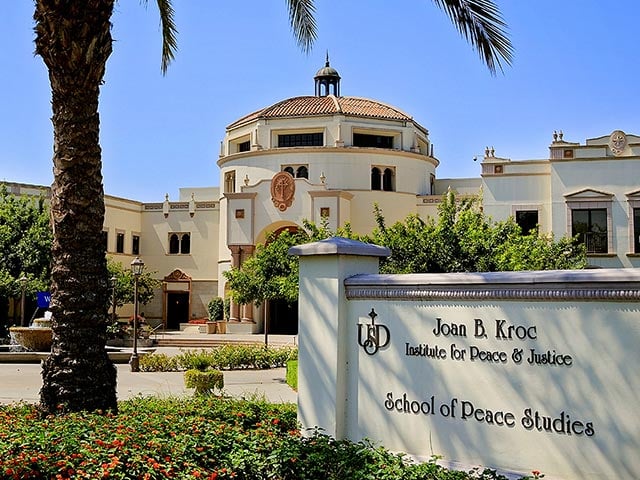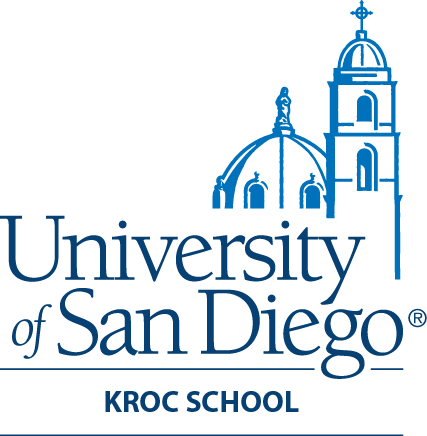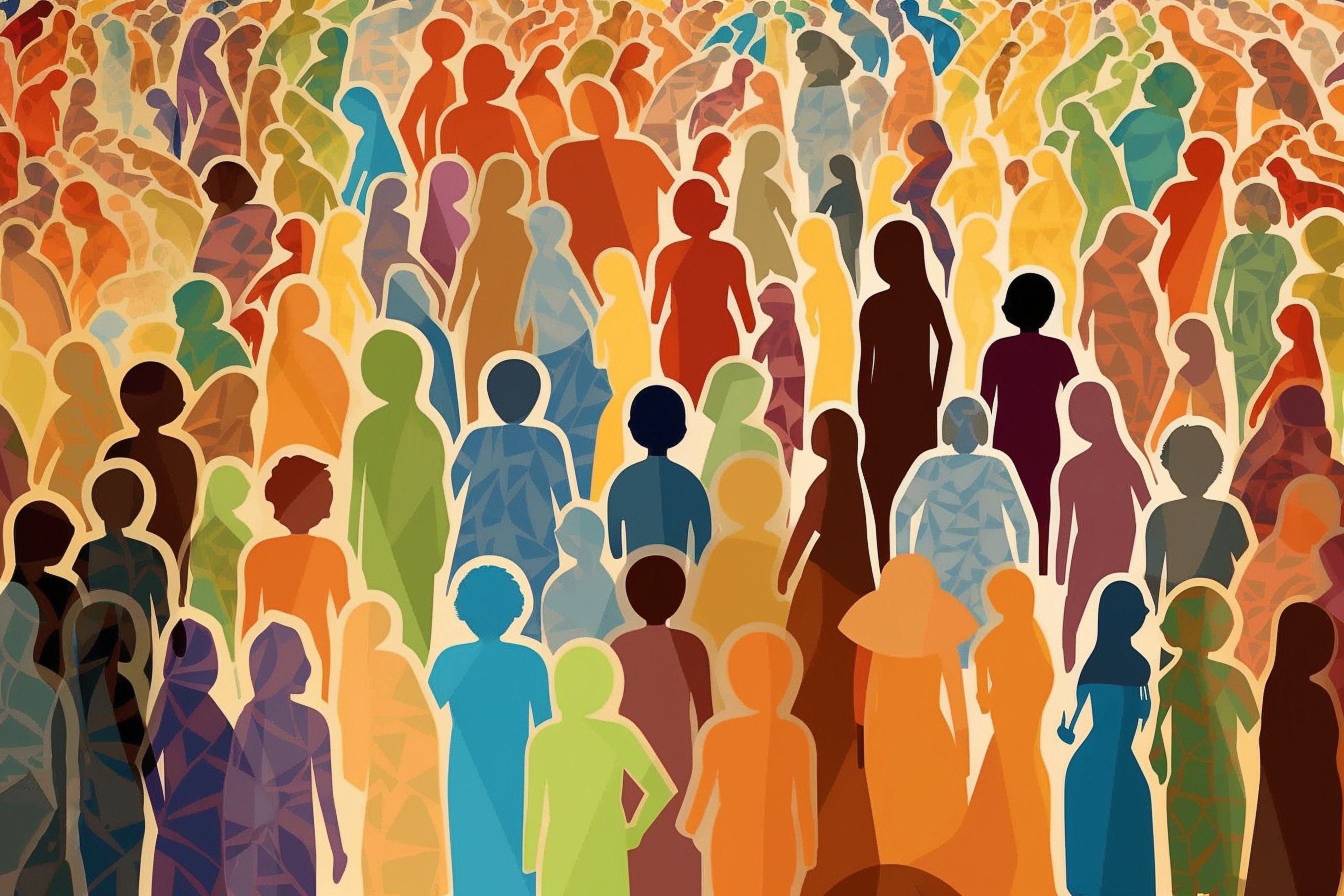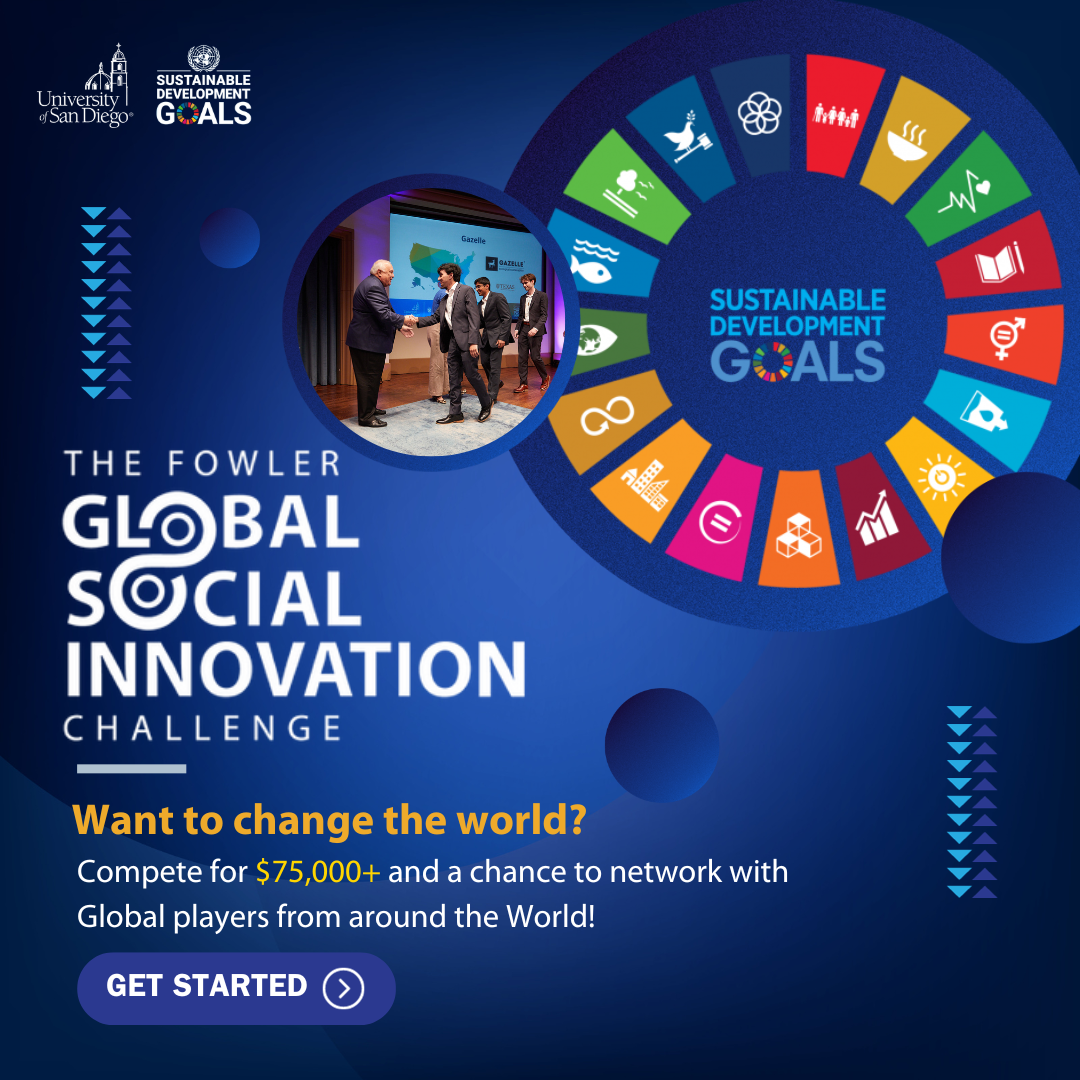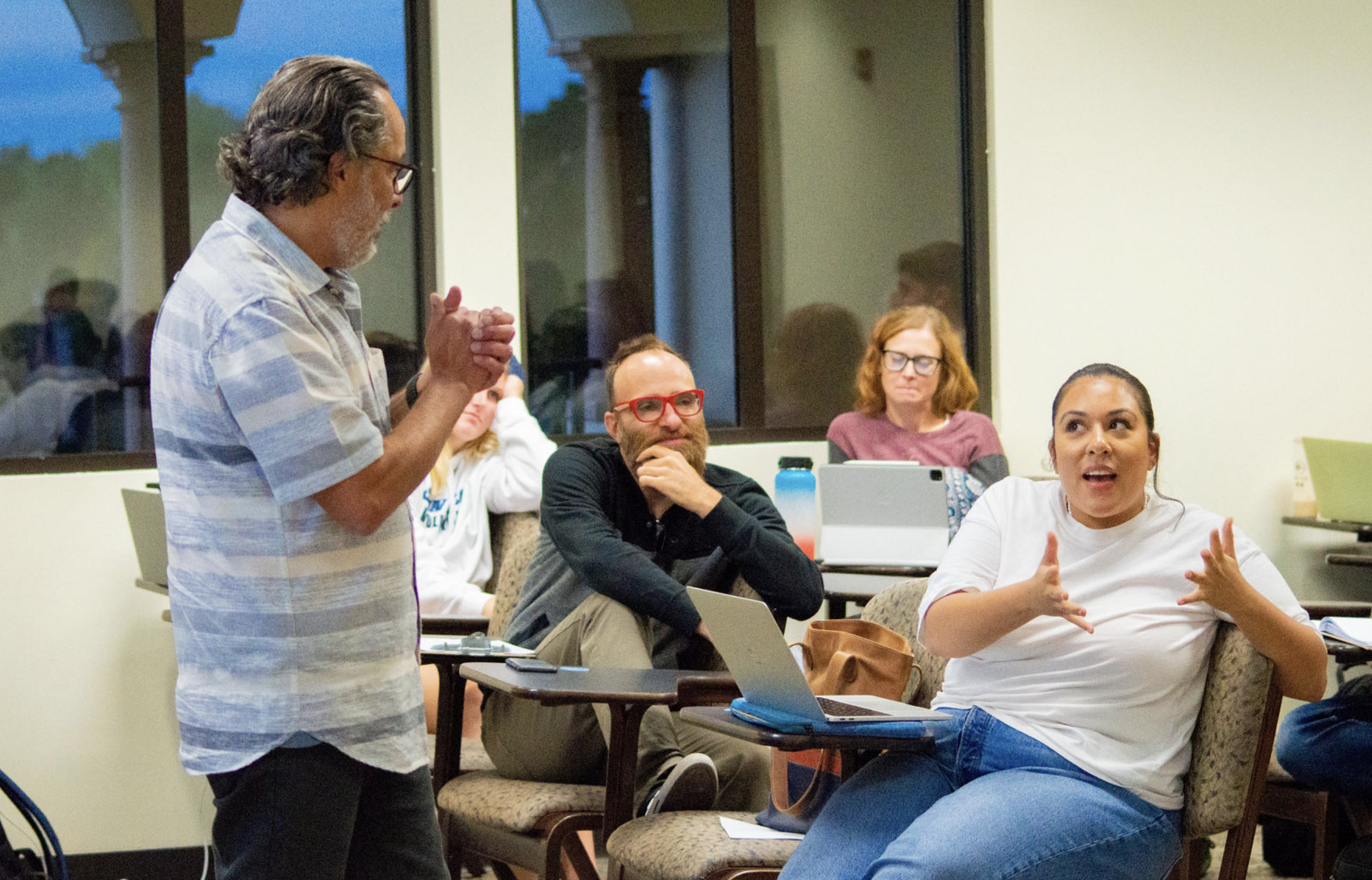
Events in the U.S. and around the world during the last few years have increased our awareness of the pressing need for social change. Whether addressing systemic cultural perspectives that harm certain minorities or the genocidal ethnic cleansing of Uighurs in China, NGOs, governments and companies everywhere are revisiting their goals and bringing social innovation into sharp focus.
It has become clear that our existing institutions and programs are not sufficient to address social problems at local, national and global levels. In fact, it is the current order of things that often creates or perpetuates existing social problems.
Our hyperconnected, fast-moving and complex world demands fresh ideas, alternative approaches and new ways of doing things to shape a better future.
Right now is the perfect time to step into a role as a world changer, a social entrepreneur, an activist, an organizer or a changemaker. The Joan B. Kroc School of Peace Studies delivers the education and hands-on training needed to understand and lead world-changing activities, and it’s known as the Master of Arts in Social Innovation.
Access our guide: WHAT IS SOCIAL INNOVATION? A GUIDE FOR ACTIVISTS AND CHANGEMAKERS INTERESTED IN RESPONSIBLE BUSINESS AND SOCIAL CHANGE
Social Entrepreneurship Definition
Entrepreneurs are people who have a business idea and build it from the ground up, and those who choose to focus on social issues are known as social entrepreneurs. Social entrepreneurs are the changemakers who develop innovative initiatives and organizations that solve social, environmental, economic or political problems. What’s key is that these people are entrepreneurial, they see opportunities for change where others don’t, and they harness available resources to make things happen – with social impact at the center of their business model.
One of the first names you're likely to encounter when studying social entrepreneurs is Muhammad Yunus. Yunus has shared his knowledge and expertise through several books on social entrepreneurship. He also founded the Grameen Bank, which provides microcredit, non-collateralized loans to those in need to help them develop financial self-sufficiency. His work with the organization earned Yunus a Nobel Prize in 2006.
Exemplifying the principles of social entrepreneurship, two restaurant waitresses set out to reduce food waste after they realized a significant amount of perfectly cooked and untouched brown rice was discarded after each shift. Using the micro-financing from Yunus’s organization, they created a company that takes a portion of the restaurant’s rice for use in a healthy cookie recipe. They sold those cookies through their social enterprise, SOULMUCH Cookies, which today “upcycles” a whole array of foods that would otherwise be sent to landfills.
What is Social Innovation?
Social innovations are the inventions, products, programs and processes that come from social entrepreneurs and social enterprises. In the case of SOULMUCH Cookies, the innovation involved using ingredients that would ordinarily go to waste to create a new product. They sold their products through their business venture, with the mission of raising awareness about a specific social cause: food waste reduction.
While the essence of social innovation is to create social change through new processes, products, services or programs, we cannot solve what we don’t understand. To propose effective solutions, impact the cause of the problem and avoid doing greater harm, leaders of change must understand the root causes of the social injustice or problem in all its complexity.
For instance, the principle of “do no harm,” is derived from medical ethics and humanitarian principles, and it is of utmost importance in creating positive change. For example, when humanitarians are evaluating a proposed solution to a challenge such as a post-natural disaster situation, a diverse stakeholder perspective is required to minimize any potential harm they may inadvertently cause through their actions (such as adding tensions between communities or creating new ones). In this instance, a diverse stakeholder could consist of people in the affected communities, relief workers and NGO managers, among others.
Understanding the root causes of problems and creating workable solutions requires empathy and human-centered design skills that solve problems by involving the human perspective in every step of the problem-solving process. The goal of the social innovator is to develop effective solutions that result from working with affected communities and deeply understanding their problems.
Social Entrepreneurship Examples
Social innovation efforts by organizations around the world have encouraged companies to find ways to become more socially conscious and to move past the façade of so-called “corporate responsibility” simply by checking off boxes on a list of what management thinks is important. In fact, Benefit Corporations (often called “B-Corps”) have emerged throughout the U.S. that place an equal emphasis on profit and social innovation.
King Arthur Flour is a B-Corp that is leveraging social innovation to benefit its stakeholders. King Arthur Flour has been providing high-quality baking staples to professionals and home cooks since 1790, from the first chocolate chip cookie to the first pizza sold in a NYC pizzeria. However, what makes King Arthur a truly remarkable company is their commitment to their employees.
In 1996, Frank and Brinna Sands, King Arthur’s owners, sold 100% of the company to its employees. The owners prioritized maintaining the family-centered work culture and felt that by selling it to their employees, it would “[bring] out the best in people.” The transaction was completed in 2004 and King Arthur became a founding member of the B-Corp community in 2007, solidifying “its commitment to all stakeholders: shareholders, business partners, the community and the environment.” Since selling the company to its employees, King Arthur Flour has experienced enormous growth, with annual sales topping $100 million.
How to Translate a Passion for Social Innovation to Real-World Action
Olivia Grégoire, the French minister for the social, solidarity and responsible economy points out that the success of companies and organizations “…will depend on their ability to provide relevant data and relevant evidence of their impact [on society],” she said. “Impact here is the magic word. We are living in an impact revolution.”
More than 100 businesses large and small have joined a new, online platform developed by the French government to help companies more clearly and transparently track their impact on society.
What the French government has done in creating this new initiative speaks to all who would wish to be game-changers. Whether a person sees her or himself as a changemaker, a social entrepreneur or an activist, looking into the work others have done can carry one directly into a position in social innovation. Consider these approaches to finding social innovation positions in leading companies.
Begin with a web search for “jobs in social innovation and social entrepreneurship.” Here’s what is likely to be revealed:
- Positions within colleges and universities teaching others about social entrepreneurship and innovation.
- Positions within companies that focus on social issues. These may include investment management, program directors, chief technology officers and a host of opportunities aimed at millennials and Gen Z students who wish to make a difference.
- Lists of B-Corp companies offer an immediate view into opportunities for anyone seeking a position as a changemaker.
- And finally, for those who wish to offer a product or invention that respects social issues, the world stands by waiting for your offerings.
Take the Next Step — Explore the MASI Degree
The Joan B. Kroc School of Peace Studies offers the vaunted Master of Arts in Social Innovation (MASI) degree. Problem-solving through innovation is becoming a required skill across disciplines and industries. At the Kroc School, we recognize social innovation as a critical tool in tackling social challenges. We know that promoting peace and shared prosperity means being able to analyze the root causes of social problems, and then being able to create and implement solutions with professionally designed and managed programs. Our Master of Arts in Social Innovation (MASI) students graduate with the practical skills and experience in wielding innovation to lead impactful careers.
Human-centered design is at the heart of the MASI program. We believe effective solutions result from listening closely to, deeply understanding, and working with affected communities. We also believe that changemakers must know how to investigate and understand the underlying causes of social challenges, which is the first critical step toward problem-solving.
The world is changing, and you can be an important change agent. To get started, begin by exploring our comprehensive resource:  . Or, if you have immediate questions about the program or submitting an application, you can book a meeting with us today.
. Or, if you have immediate questions about the program or submitting an application, you can book a meeting with us today.



